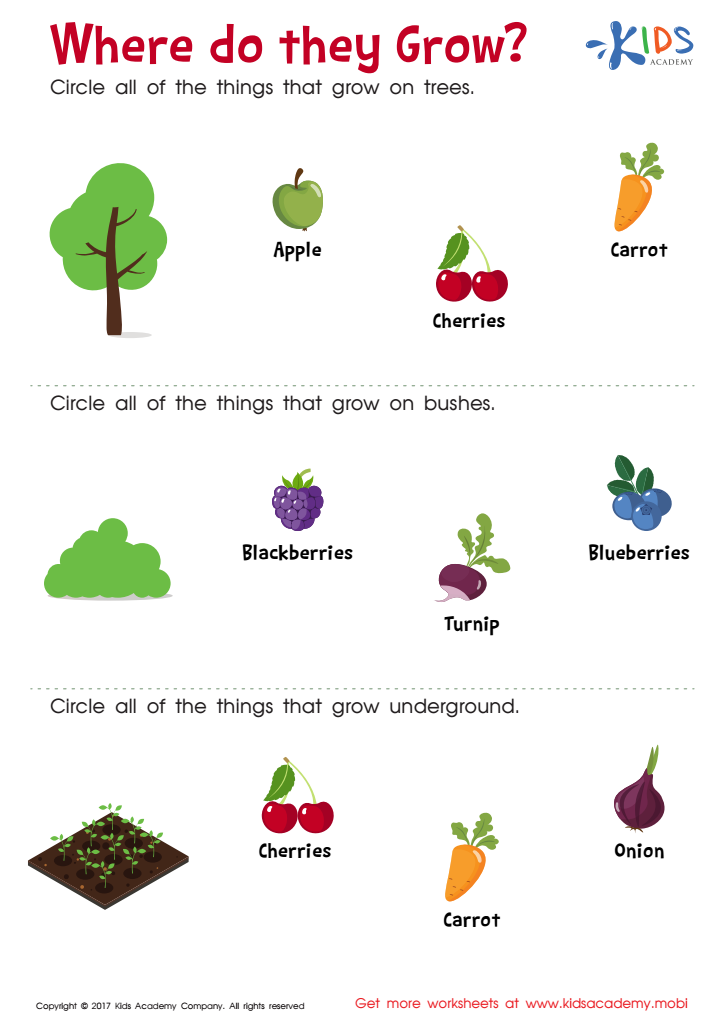Learning about habitats Worksheets for Kids
1 filtered results
-
From - To


Where Do They Grow Worksheet
Question/Answer
Why is the Learning about habitats skill important for Kindergarten students?
Learning about habitats in Kindergarten is crucial as it lays the foundation for understanding biodiversity, interdependence of organisms, and environmental awareness. It fosters curiosity about the natural world, encourages respect for living things, and introduces basic ecological concepts. This early knowledge helps children appreciate the importance of protecting habitats and promotes a sense of responsibility towards the environment.
How does the mastery of the Learning about habitats skill affect a student's performance at an early age?
Mastery of the Learning about habitats skill at an early age positively affects a student's performance by enhancing their understanding of biodiversity, interdependence of organisms, and environmental awareness. This foundational knowledge fosters critical thinking, observational skills, and a deeper appreciation of nature, which contributes to improved academic performance in science and other related subjects.
How to train the Learning about habitats skill in Kindergarten students learning about Plants and Animals?
To train the "Learning about habitats" skill in Kindergarten students, introduce interactive activities such as habitat sorting games, creating simple dioramas of different environments, and storytelling that incorporates various animals and their homes. Encourage hands-on exploration with outdoor walks or indoor plants and terrariums to observe living things in their natural or simulated habitats.

 Assign to the classroom
Assign to the classroom












